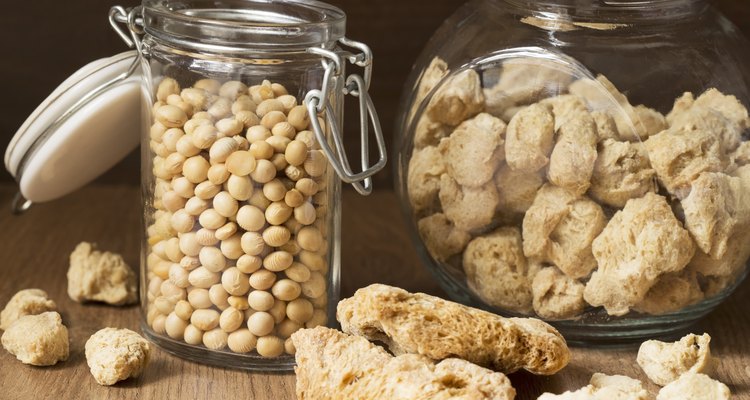
TeodoraDjordjevic/iStock/Getty Images
The soybean is set apart from other plant foods because of its high-quality protein content, according to the Mayo Clinic. Soy also contains fiber and isoflavones. Isoflavones are a type of plant-derived compound called phytoestrogen that have estrogenic activity. The dietary intake of soy may reduce cholesterol and lower the risk of heart disease. Additionally, soy may have a number of positive effects on the skin. As a skin care ingredient, soy is purported to diminish wrinkles, reverse sun damage and even tighten sagging skin.
Custom Moisturizing
Soy may be particularly beneficial for people with combination skin. Soy is sometimes referred to as a “smart” moisturizer because of its innate ability to moisturize dry areas while decreasing oiliness in other areas, notes Skin and Aging.com. Moisturizers that contain soy may have softening and smoothing effects while evening out skin tone.
Wrinkles
A form of soy isoflavone called aglycones shows promise in improving the appearance of aging skin, including the diminishing of fine lines and wrinkles.
A Japanese study published in February 2007 in the "Journal of Nutritional Science and Vitaminology" concluded that the oral intake of 40 mg soy aglycones daily over 12 weeks improved the skin of 26 female volunteers ranging in age from the late 30s to early 40s.
The study was lead by T. Izumi of the Research and Development Division, Kikkoman Corporation, Noda, Japan.
Despite these encouraging findings, the Mayo Clinic points out additional research is needed to substantiate the role of soy in anti-aging skin care.
Skin Firming
Soy may improve skin firmness by encouraging collagen production and promote the repair of elastin fibers, according to Skin and Aging.com. Collagen and elastin fibers work together to help keep skin firm. As skin gets older, these fibers weaken and cause skin to sag.
Reverse Sun Damage
Soy moisturizing creams may help reverse common signs of sun damage such as fine lines, blotchiness, discoloration and skin roughness, notes the Mayo Clinic. Since these products contain ingredients other than soy, further research is necessary to determine the specific role soy plays in treating sun-damaged skin.
An animal study published in April 2004 in the "Journal of the American College of Nutrition" found soy isoflavone extract had an anti-aging effect on the hairless mice who suffered from ultraviolet ray damage.
The research was headed by S.Y. Kim of the Pharmaceutical & Health Research Institute, AmorePacific Corporation R&D Center, Yongin, Kyounggi, Korea.
Related Articles
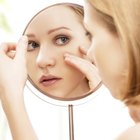
Skin Care Products That Contain ...

Can Age Spots Be Reversed?
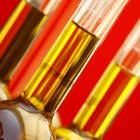
Jojoba Oil Benefits

Oil of Olay & Wrinkles

The Nutrition in Soybean Sprouts

Papaya & Acne

List of Retinoids

Can LED Light Get Rid of Brown Spots on ...

Benefits of Shea Butter and Coconut Oil ...

Glucosamine: Skin Benefits
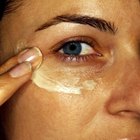
The Best Facial Moisturizers for People ...

Collagen & Rosacea

The Difference Between Retin A & Renova

Elastin Supplements
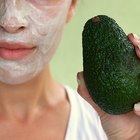
Homemade Face Masks for Glowing Skin

How to Make Vitamin A for Skin Care

How to Wash Face With Soy Milk
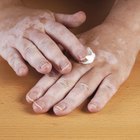
Black Pepper Oil for Vitiligo

What Are the Benefits of Ashwagandha in ...

Can Tri-Luma Be Used to Fade Acne Scars?
References
Resources
Writer Bio
Karen Hellesvig-Gaskell is a broadcast journalist who began writing professionally in 1980. Her writing focuses on parenting and health, and has appeared in “Spirituality & Health Magazine" and “Essential Wellness.” Hellesvig-Gaskell has worked with autistic children at the Fraser School in Minneapolis and as a child care assistant for toddlers and preschoolers at the International School of Minnesota, Eden Prairie.
Photo Credits
TeodoraDjordjevic/iStock/Getty Images